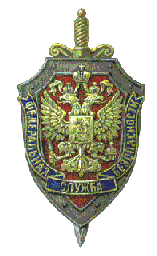Spy Vs. Spy
Many who have done business in developing countries where wealth is disproportionate, hostage-taking is common and Americans are always a target, know the value of a couple of bodyguards and an armored escort when driving, no matter how much the service costs.
The main reason why companies budget for physical protection in some locales is a certainty on their part that if they don't defend themselves, the local law won't defend them either.
The same is true on the Internet, where business conditions are probably comparable to working conditions in Uzbekistan or North Korea - the 149th and 155th least-free economies on the planet, according to the 2000 Index of Economic Freedom. But in the last year, a handful of private companies have started to take enforcement into their own hands, quietly developing security units to protect their clients' assets in cyberspace.
Web hosters such as Exodus Communications, Metromedia Fiber Network and ServerVault have been hiring retired agents from the Federal Bureau of Investigation, National Security Agency, Secret Service, Royal Canadian Mounted Police, Scotland Yard, U.S. Army and U.S. Navy, and whisking others away from their govern









